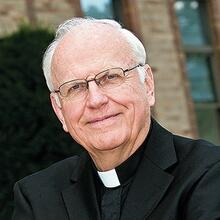Here are three rules of thumb for interpreting apocalyptic literature, which may assist preachers. (1) The literature originated among ancient royal scribes. Employees of the king, they naturally interpreted the course of history as the successive rise and fall of empires, e.g., the Assyrian kingdom followed by the Babylonian kingdom followed by the Persian kingdom. Moreover, taking the rule of the gods seriously, they assumed that the succession of empires reflected the rise and fall of an empire’s patron deity. (2) Destruction and war customarily accompanied change of empire, and the destruction was sometimes expressed metaphorically as the disruption of natural processes such as heavenly luminaries and earthquakes. (3) Biblical authors used this ancient way of speaking to express their conviction that the succession of empires, "the course of history," would eventually end and yield to the empire or kingdom of God (e.g., Daniel). New Testament writers adopted the Old Testament perspective and taught further that the definitive kingdom of God had arrived in Jesus, though it co-exists for the time being with other kingdoms. Christians had to learn to live in this kingdom, which had not yet arrived in its completeness. They thus rejoiced in this kingdom even as they waited for its full realization.
Richard Clifford, S.J.Apocalytpic Literature Readings
Some readings at the end of the liturgical year and the beginning of Advent are from "apocalyptic" books such as Daniel and the "little apocalypses" in the Synoptic Gospels. These passages refer to cosmic disturbances (sun and mood falling out of the sky), wars, and terror-stricken people, giving the impression of punishment by an angry God. The impression is completely false. Apocalyptic literature was written to encourage people and enliven their hope in God’s rule of history.
Show Comments ()
1
Comments are automatically closed two weeks after an article's initial publication. See our comments policy for more.
16 years 3 months ago
When I was in college, I took an independant study on this topic. I wanted to thank you for condensing some of the consistent themes in that type of writing and for mentioning its prevelence in the accepted (Church sanctioned passages) books of the Bible. So many seem to focus on Revelations as the only apocalyptical writing and that just isn't so.
The latest from america
A portion of a new interview with Pope Francis will air tonight on the “CBS Evening News” at 6:30 p.m. Eastern, according to a release from the CBS News Communications office.
A Homily for the Fifth Sunday of Easter, by Father Terrance Klein
The reflections of Timothy Radcliffe, O.P., convinced me that Pope Francis' reframing of the scope and meaning of synods will have staying power, because it opens up a new model for the church.
During his general audience, Pope Francis reminded his listeners of the importance of the theological virtues of faith, hope and charity. Engaging the crowd by having them recite the virtues aloud, Francis said that theological virtues animate our everyday actions toward the good.







